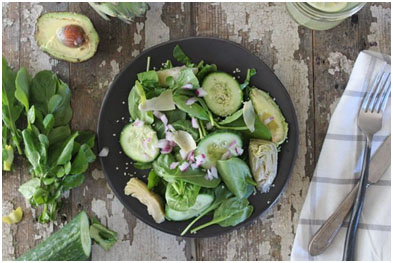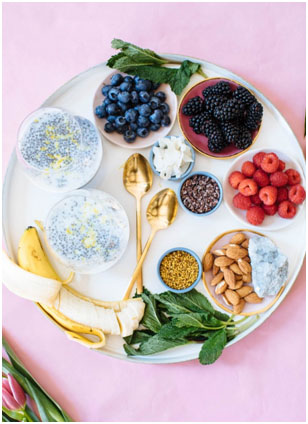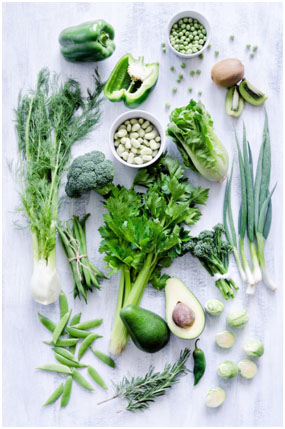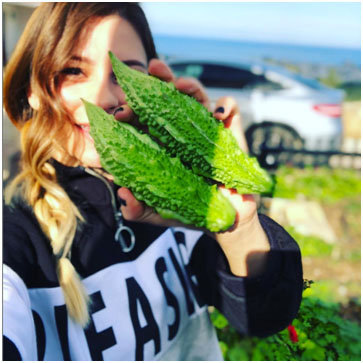Considering the rapid rise in kefir, kombucha, sauerkraut, tempeh and probiotic products, it's pretty clear gut health is on everyone's minds. And with good reason – plenty dood quality study results are emerging showing just how important good gut health is for every aspect of our health and wellbeing.
Not having a healthy gut (dysbiosis) has been linked to many many different medical conditions and we seem to be discovering more and more of these every day. Some of them include; diabetes, inflammatory bowel diseases (Crohn’s disease and ulcerative colitis) anxiety, depression, cancer, eczema, autoimmune disorders, obesity, thyroid problems, autism…thus, keeping your gut nice and healthy can help keep the rest of your body healthy.
Not having chronic gas problems/bloating, diarrhoea and constipation and feeling better in general with better mood, high energy, a healthy weight and not feeling constantly fatigued are all good indications that you have a healthy gut!
Having loose and unformed stools, havin chronically severe constipation, foul smelling stools, feeling gassy and bloated all the time, feeling foggy headed with a poor mood are all important signs for an unhealthy gut.
A variety of diet and lifestyle-related factors can affect the health of your gut. From a nutritional perspective poor diet with a limited variety of vegetables and low fibre, alcohol and consuming too much fat and processed red meat all negatively affect your gut bacteria and health. From a lifestyle perspective, not being active, having poor sleep habits and not being able to manage stress are all seriously detrimental factors for your and your gut bacteria’s health.
First of all, take baby steps and don’t stress out about doing everything right at the same time!
Try to make it a habit to start including a variety of fruits and vegetables, consuming healthy fats in moderation and limiting the saturated ones, including enough fibre and prebiotic foods in your diet. In addition, make sure you are active throughout the day and try incorporating around 20-45 minutes of exercise into your day.
1. Eat more vegetables and fruits- focus on variety
Vegetables provide our body with the nutrients it needs on a day-to-day basis and help to maintain general health. They also provide fibre to keep the gut healthy and help our body's systems run more effectively. I would say try to aim for 20 different kinds of veg and fruit per week!
2. Definitely focus on your fibre intake
Speaking of fibre in veggies, aim to increase your overall fibre content, especially if your intake of fruit, vegetables and legumes is low.Fibre can provide a huge variety of compounds and nutrients that will help improve gut health. The fibre is in whole grains, fruit, veggies, nuts and legumes and an average female adult should aim for 25g while an average adult male should aim for 38g of fibre per day. Try to calculate how much you actually consume with your average daily diet for a great eye opener! Chances are you are not consuming more than 15-18gr.
This is why a plant-based diet seems to be all the hype these days as such a diet is great for gut health in so many different ways.
3. Eat plenty of prebiotic-rich foods
Prebiotic foods are basically food that your gut bacteria love. Good ones flourish while the bads ones are kept in check with a diet rich in prebiotics. Foods such as asparagus, onions, garlic, bananas, brussels sprouts, broccoli, whole grains, leeks, jerusalem artichoke, apples, flax seeds are all rich in prebiotics.
4. Eat more probiotic-rich foods
Rather than choosing probiotic supplements as your first line of defence for gut health, opt for wholefoods unless you have a specific condition that may be improved with extra supplementation or have recently taken a course of antibiotics! Different types of probiotics can have different impacts on gut health. For example, some are targeted to eczema while some are better for mental health or constipation.
Before taking a probiotic supplement, speak to your gastroenterologist or a dietitian specializing in gut health to find the right supplement for you.
Foods such as yoghurt, kefir, miso, sauerkraut and kimchi all include probiotics as they are all fermented.
5. Drink wisely
Alcohol can negatively affect gut health, so try to reduce your overall intake of alcohol and remember to drink more water.
6. Reduce junk food intake
You might but your good gut bacteria hate processed, fatty and sugary foods. Try to stay away from soft drinks, biscuits, chips, candies, sausage, cured meats and other packaged foods that contain too additives.
7. Pay attention to quality sleep habits
The current study findings suggest a possible relationship among sleep quality, composition of the gut microbiome, and cognitive flexibility in healthy older adults. Try to stick to a sleep schedule of the same bedtime and wakeup time everyday. This helps to regulate your body's clock and could help you fall asleep and stay asleep for the night getting better quality sleep. Avoid looking at laptop/phone screens around 2-3 hours before going to bed or use a blue light filter to let your melatonin rise naturally preparing your body for sleep.
Here are two recipes that can help you increase your fibre intake and variety
- Avocado Artichoke Arugula & Spinach Salad
- 2 cups of organic spinach
- 2 cups of arugula
- 1/2 cup fresh sliced organic cucumber
- 1/4- 1/2 cup of roasted artichoke hearts (fresh then roasted or frozen and thawed)
- 1/2 avocado
- 1/4 cup diced red onion
- 3 tablespoon of shelled hemp seeds
- fresh black pepper and sea salt to taste
To make it a meal --> Top with quality proteins such as tofu, tempeh, beans, chicken, eggs, fish, nuts, more seeds, etc.
- Chia Pudding
- 1 cup chia seeds
- 2 cups of almond, cashew, or coconut milk
- Add-ins like blueberries, banana, raspberries, and blackberries or whichever fruit you prefer
Directions: Mix together the chia seeds, non-dairy milk of your choice, and let sit in the refrigerator the for at least 1 hour until gel forms. Then add your topping choice just before you consume it! Chia pudding can be kept in an airtight glass container or in the fridge for up to 1 week.










